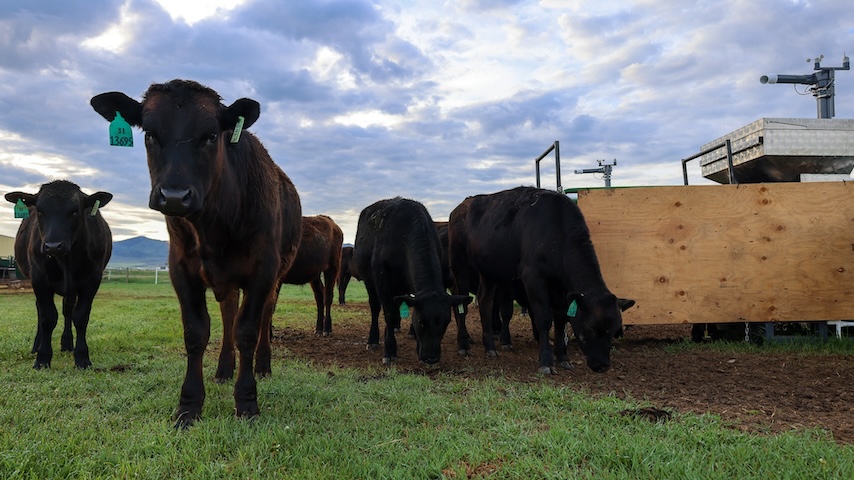Seaweed Could Be the Answer to Cow Burps
Photo by Paulo de Méo Filho/UC Davis
Turning off the coal and gas plants and electrifying the entire vehicle fleet is, of course, only part of the battle. Agriculture accounts for an enormous chunk of global emissions, and the methane from burping livestock is one of the most important subgenres of those ag emissions. A new study, published Monday in Proceedings of the National Academy of Sciences, adds to some existing evidence about a simple way to cut them dramatically: seaweed.
Researchers from the University of California, Davis, tested a seaweed-based supplement for grazing beef cows on a ranch in Montana. They gave 12 cows the supplement, but left another 12 without it; the cows wandered around for 10 weeks, burping as usual, but the ones that ate the supplement produced 37.7 percent less methane than their buddies — and showed no differences afterward in terms of health or weight. That’s an enormous improvement, especially of a greenhouse gas that is substantially more powerful a warming agent than carbon dioxide, though on a shorter time scale.
“We need to make this seaweed additive or any feed additive more accessible to grazing cattle to make cattle farming more sustainable while meeting the global demand for meat,” said Ermias Kebreab, an animal science professor at UC Davis, according to a press release.
This was the first time seaweed was tried specifically on grazing cattle — the same team has previously found that it can cut methane by more than 80 percent in feedlot steers, and by a similar 43 percent (when normalized for how much of the seaweed they ate) in dairy cows. Grazers present a specific challenge, given that they often wander far away from where a seaweed supplement might be offered; making the seaweed more accessible isn’t trivial, but would obviously offer some significant benefits.
Seaweed is also cheap, with its use potentially lowering overall feed costs, according to some previous work. The interest in this appears to be growing; another research team at the University of Oregon will soon start a pilot project using a $1 million Department of Agriculture grant to feed a seaweed called Pacific dulse to grazing cattle.
The real solution to livestock emissions, of course, is to try and shift how the world gets its protein. But outside of such a massive undertaking, nibbling around the edges of your average cow burp is a meaningful way to reduce warming on a short timescale.